“This is the most cost-effective form of professional development for faculty members and staff that I have ever encountered.” This sentence, spoken by a provost at a CIC member institution, was referring to the popular regional and topical gatherings hosted by CIC’s Network for Vocation in Undergraduate Education (NetVUE).
Every other year, CIC hosts a large national NetVUE conference; the most recent one, in Atlanta, drew over 800 participants. These biennial events are exciting and influential, but their size makes it challenging to engage in the kind of deep networking that is especially valued by faculty members and staff. In contrast, NetVUE regional and topical gatherings typically draw 60 to 80 participants over two days, providing more time and space for participants to meet one another, share best practices, and establish deeper collegial relationships. Importantly, these events are heavily subsidized through NetVUE member dues; the registration fee of $100 covers all costs, including two nights’ lodging and all meals. In an era when significant professional development opportunities have become increasingly expensive (and out of reach entirely for some institutions), the return on investment for NetVUE members is worthy of attention.
Three regional events took place during Fall 2024. In September, Loras College (IA) hosted Vocation and the Common Good, providing educators with strategies to promote collective wellbeing and to encourage students to consider the common good as they explore their future directions in life. The event drew over 100 participants from 30 member institutions. Keynote speaker Mary Dana Hinton, president of Hollins University (VA), offered a talk on “Leading with Love”; participants also heard from contributors to the most recent book from the NetVUE Scholarly Resources Project, Called Beyond Our Selves: Vocation and the Common Good (Oxford, 2024). The event also served as a launch for this year’s NetVUE Big Read, through which member institutions can receive free copies of the book for use in on-campus reading groups.
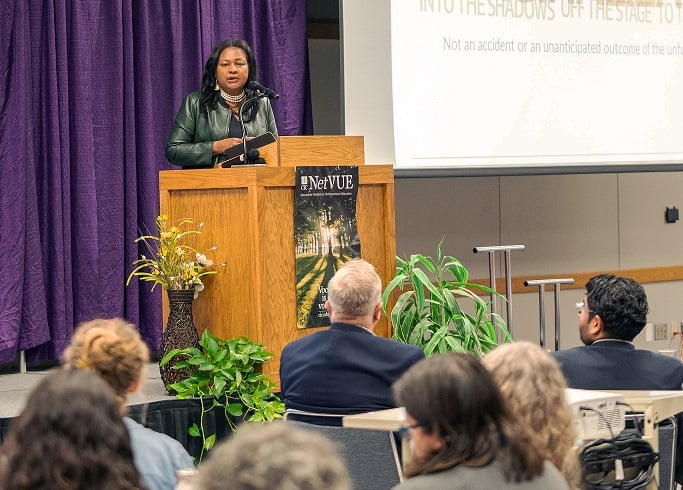
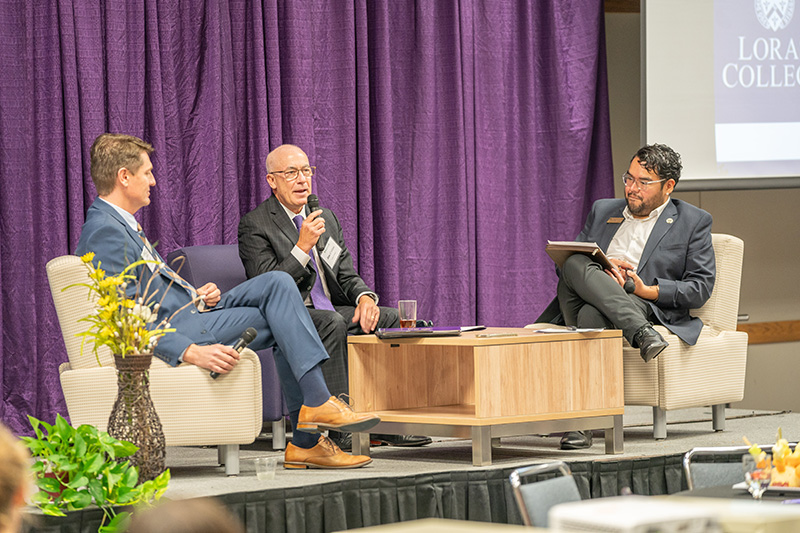
Photo 2: This gathering also included a conversation between a president in his first year (Travis Frampton of the University of Dubuque (IA), left) and one in his final year (Jim Collins, Loras College, center), moderated by Art Sunleaf, vice president for student development at Loras.
In October, over 70 people from 15 member institutions gathered at King University (TN) for an event focusing on Storytelling and Vocation. With guidance from seasoned storytellers, a shared sense of the importance of vocation, and time to reflect together, this gathering provided a welcoming space for educators to consider how storytelling supports students in the process of vocational exploration and discernment. Speakers included podcasters, journalists, playwrights, singers, filmmakers, and others for whom storytelling is a way of life. Highlights included a performance by the Twin City Radio Theater, a keynote address from Kiran Signh Sirah, and a talk by Hannah Rappleye (NBC News) and Derek Scott, who worked his way out of poverty and addiction—and through many levels of bureaucracy—to complete a law degree and pass the bar. Scott’s story, and many of the other stories told at the event, provided genuine inspiration to the participants as they returned to their home campuses to explore further the important relationship between storytelling and vocation.
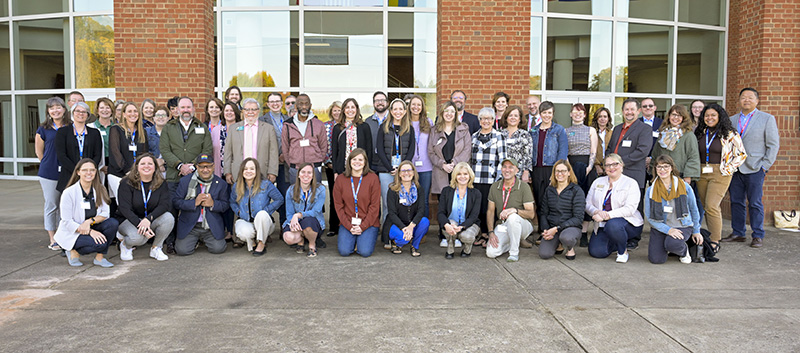
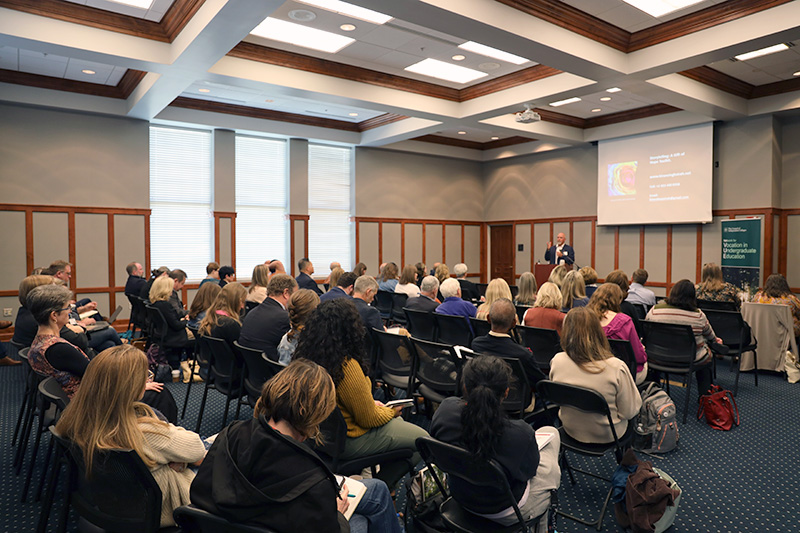
Photo 2: Participants in this NetVUE regional gathering listen to a presentation by film executive Ty Warren.
In November, Texas Lutheran University hosted Equity-Based Initiatives to Support Vocational Discernment. The goal of this gathering, which drew over 60 participants from 30 member institutions, was to deepen the role of vocation and calling among culturally diverse student populations, drawing on the wisdom of thought leaders who have a track record of success and innovation. Keynote speakers included Lamont Anthony Wells, executive director of the Network of ELCA Colleges and Universities, and Marybeth Gasman, professor of education at Rutgers University (NJ). A panel of presidents (including Debbie Cottrell of Texas Lutheran, Kristi Kirk of Concordia University Texas, and Glenell Lee-Pruitt of Jarvis Christian University (TX)) spoke of the challenges of addressing issues of equity in the current political and educational climate. Breakout sessions throughout the event offered practical strategies for implementing equity-based initiatives for vocation and calling across a diverse student community.

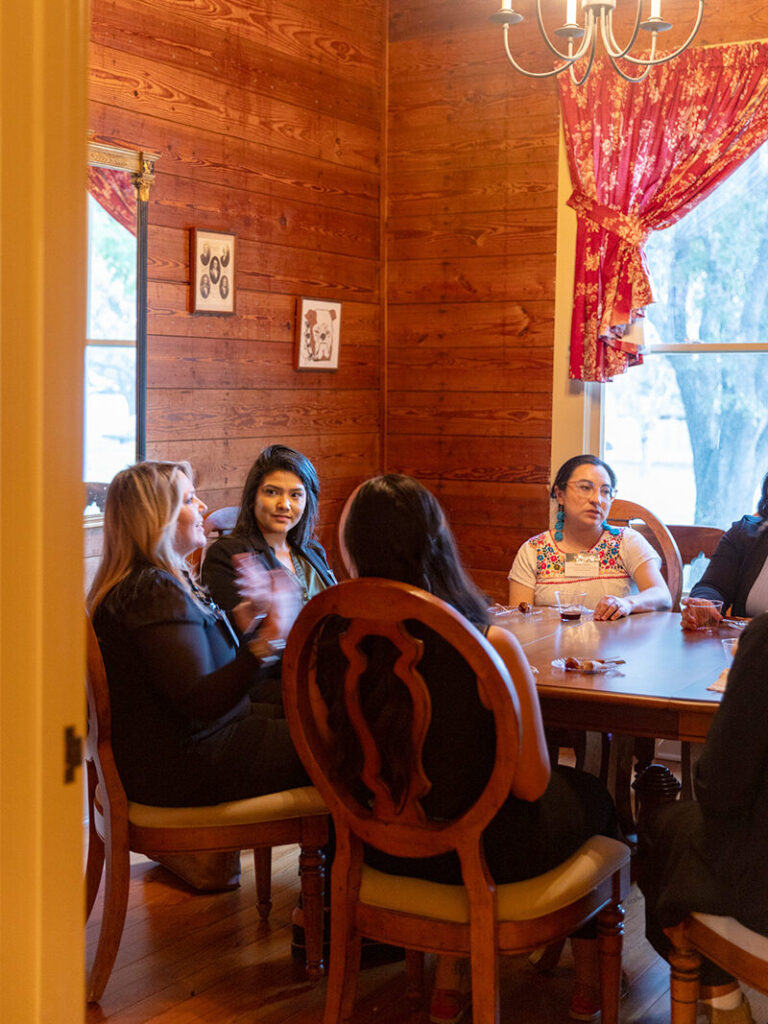
PHoto 2: This regional gathering provided ample opportunities for informal conversation among participants.
In addition to offering compelling programming, the hosts of these regional gatherings also provided extraordinary hospitality: visits to local museums, meet-and-greet receptions, and outstanding local food and drink. Participants evaluated all three events highly and expressed their appreciation for the opportunities that these events provided. They were especially grateful for the relatively small size of the gatherings, which allowed for a deeper level of engagement and the development of a wider range of contacts and conversation partners at other institutions.
These highly subsidized professional development opportunities are available to any member of the faculty or staff at all NetVUE institutions. Although the events are called “regional,” they are typically attended by teams from colleges and universities across the country; they are regional only in the sense that an effort is made to host them in various regions of the country, in order to minimize travel costs. Upcoming NetVUE events will be hosted by Furman University in Greenville, SC; Pacific Lutheran University in Tacoma, WA; and Hope College in Holland, MI. Over 300 CIC institutions are also members of its NetVUE program, but all CIC members are eligible to join NetVUE at any time. For information on NetVUE membership for your institution, contact Jane Walters, NetVUE grants and membership manager, at jwalters@cic.edu.
An Additional $20 Million for NetVUE Member Institutions
In November 2024, CIC received the largest single grant in its history—nearly $20 million—from the Indianapolis-based Lilly Endowment Inc. These funds are designated to support CIC’s NetVUE program, and most will be used for grants to member institutions. The dollar amount of NetVUE grants will increase by 50 percent or more, and two new grant opportunities will be developed later this year: large transformational grants to institutions with considerable experience with vocation-related programming, and grants to individual faculty members and staff who wish to pursue a specific project in their classroom, through their research, or as part of their campus program. The grant will also fund a major new empirical research study of the outcomes of vocational exploration programs, both for students and for institutions. For more details, view the CIC press release about the new award.


